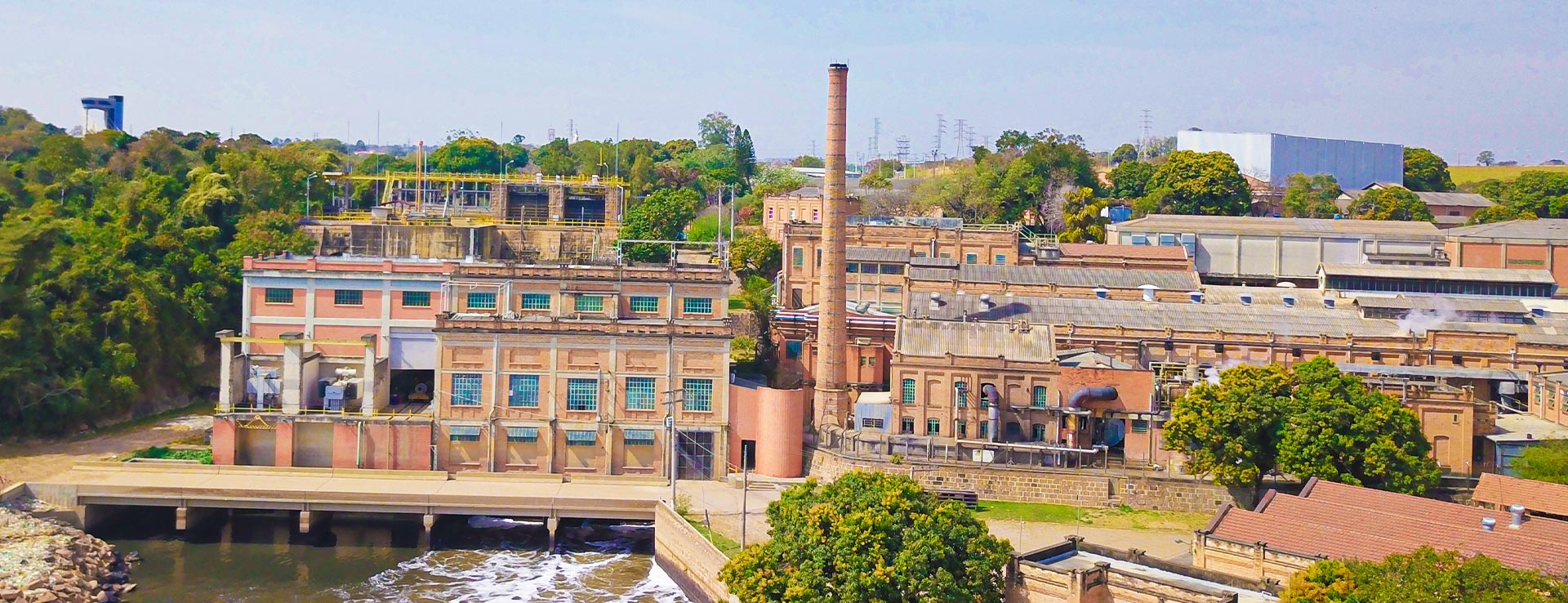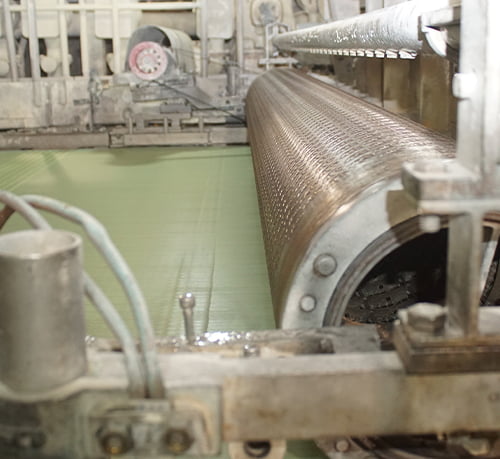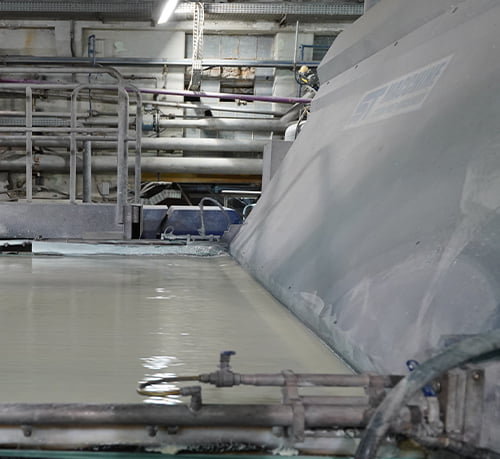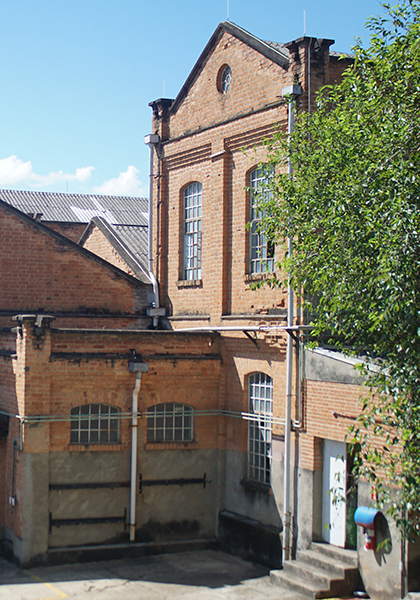The first paper mill in Brazil and Latin America.
History
The Salto Paper Mill, in the countryside of the State of São Paulo, was inaugurated in 1888, and it was the first paper mill in Brazil and Latin America.
Today, this century-old company is going through a new moment, merging its precursor past with the restlessness of a new brand that seeks to be always ahead.
Most importantly, we cannot forget a special ingredient that is part of our trajectory: the passion to produce one of the best papers in the world. Blendpaper is born, mixing its 130-year tradition with inventiveness in order to meet the new demands of our time.
The history of the company is marked by great facts and events. The Salto Mill begins operations in 1889, the same period when the Republic is proclaimed in the country. The second machine for paper production comes in the middle of World War II, in 1942, proving once again that the factory was made to meet challenges.
The history of paper in Brazil starts soon after the discovery of the country in the year 1500, with the famous Letter from Pero Vaz de Caminha to the king Dom Manuel of Portugal. The first presses arrived during the Colonial Period in which paper was made manually. The first record of industrially manufactured paper in the country is from 1809 in Rio de Janeiro. It was made from the embira tree, but later on, abandoned.

It was only on September 16, 1889, with the beginning of the Salto Mill’s operations that industrial paper production began in the country, a milestone in the history and development of Brazil.
Its owners at the time, Manoel Lopes de Oliveira, and Antônio and Carlos Melchert welcomed the country’s great names on the inauguration date. They were Francisco Glicério, Bento Quirino, Bernardino de Campos, Marquês de Três Rios, Barão de Tatuí, Barão de Araraquara, among others. Due to the great relevance of the event, it was featured in all newspapers of the time.
The first facilities contained an American Fourdrinier system machine, a boiler with a 30-meter-high chimney and a Hollander to steam the raw material.
The State of São Paulo, strengthened by the coffee economy, had built railroads and supporting infrastructure, and well-capitalized, could afford that great initiative which was also made possible by the construction of a hydrographic canal, designed in 1873 by the Barão de Piracicaba. The canal allows the capture and flow of the treated fluids from the Tietê River. Today, Blendpaper runs this activity, prioritizing it and taking every care to preserve the quality of the water and the environment.


Machine 2, a Maschinenfabriken Wagner Dorries AG, which was imported from Germany and weighed 217 tons, arrived at the Port of Santos shortly before Brazil, under Getúlio Vargas’ administration, declared war on the Axis, which would make the whole business unfeasible. Machine 2 would be responsible for the manufacture of 200 tons of paper per month, from imported pulp.
Machine 3, comes in 1968 bringing the first Fourdrinier manufactured nationally by Indústria Mecânica Cavallari S.A. de São Paulo, founded in 1905. Machine 3 reached the production of 500 tons per month already using national eucalyptus pulp (short fiber).
Founded in 1698 by Antônio Vieira Tavares, the city of Salto is where the mill is located with its high-tech machines for the production of special, fine and security papers. The Salto mill has a privileged area of 98,000 sq. its premises preserve the architecture and historical setting of 19th-century buildings, where more than 400 employees work.
The history of paper has in the Salto mill a great stage, with many movements in its century-old journey.
In the 1990s, VCP (Votorantim Celulose e Papel) acquired the Papel Simão Group plant, becoming one of the Brazilian group’s major businesses. Later in the 2000s VCP sold its stake to another pulp and paper giant, Arjowiggins, a group of Anglo-French origin.
In 2015, Fedrigoni, an Italian Group, leader in the production and sale of Fine papers, Banknote paper, and security products, acquired the Brazilian subsidiary of Arjowiggins, forming Fedrigoni Brasil Papéis.
As of March 10, 2022, Fedrigoni’s tradition and confidence has new names: Blendpaper and BP Security.
BP Security becomes responsible for security products, and Blendpaper is focused on the production of pulp-dyed papers, converted papers, packaging papers and special papers.
New brands preserving excellence in quality, which has always been part of our history.

Blendpaper, come with us and be part of this new story.

















